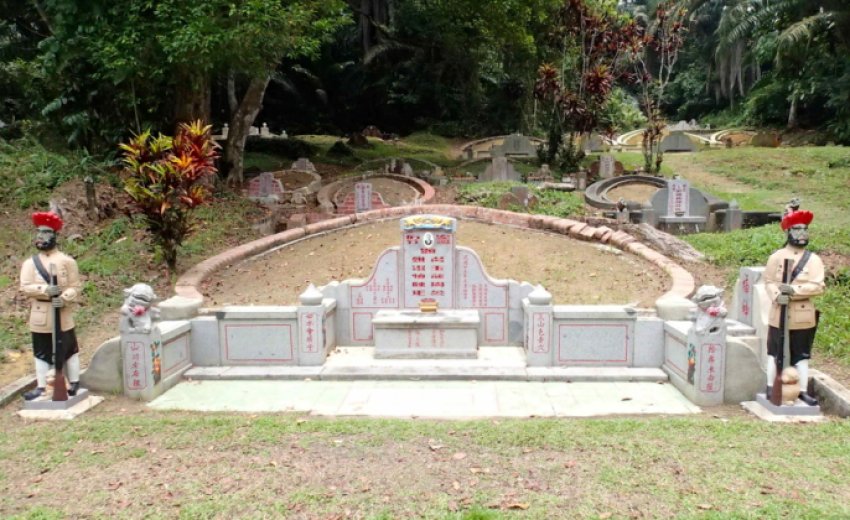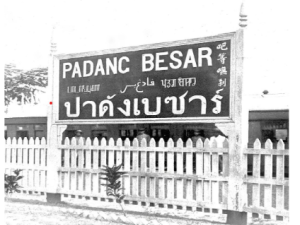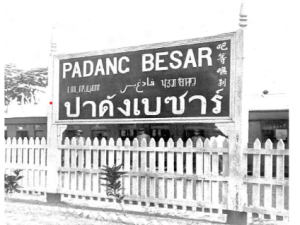Co-written by Harprabhjeet Singh Bedi
Mungkali Kwai (Sikh Devils), Hongtou A-san (Red headed No.3) or even 'big head in green coat' is a well known limerick among the local Chinese in Hong Kong, Shanghai, Malaya & Singapore, sang to make fun of the Sikh policemen that struck fear among miscreant and was enough to send the mobs fleeing.
The appearance of the single majestic looking Sikh in their red turbans helped prevent any "untoward incidents and the fact that Sikh policemen were 'the most visible public symbol of colonial rule, in daily contact with the population and enforcing the codes of law that upheld colonial authority'.
In early days there were a large number of Indian policemen who traditionally wore turbans. They were therefore dubbed "big head in green coat" Later, when the Chinese police officers were recruited, they wore conical straw hats which made their heads look big. Hence the public continued to call the police the " Big Head in a green coat". just as it used to. This was how a well-known Cantonese ditty came about : " ABCD, ????, ????, ?? BB !" which means : "ABCD (the ethnic designation), Big Head (the turban) Green Coat , Not catching the thief, Keeps blowing the whistle !".
Sikh policemen were an indelible part of the landscape of Hong Kong, Shanghai & Straits Settlements in the first decades of the twentieth century, and have left their mark in the ways in which the city is remembered up to the present day.
The perception of Sikhs as a 'Martial Race' had encouraged the Shanghai Municipal Police to follow Hong Kong's example and look to Punjab for cheaper alternatives to British constables. The Sikhs did a great job policing Shanghai during turbulent times for almost a century. Thus the Sikhs of treaty port Shanghai were symbols of the British community's power over the Chinese population and of British predominance within an international settlement, and have since assumed iconic status. The Sikhs also proved to be capable policemen in Hong Kong for from 1841 to 1941 laying the foundations for the world's finest.
Sikhs were also employed by the British in Tientsin, Amoy, and Hankow, as well as further afield in Singapore, Malaya and elsewhere.
In the later part of the nineteenth century, the security in the Straits Settlements and other Malay States was threatened with the rise of secret societies and skirmishes of Chinese clans became acute in the rich tin-mining region of Kinta Valley. With the growth in trade, it was necessary to police the godowns, banks and other important buildings and institutions. The 'proud Sikh soldier' and his various attributes prompted British administrators of the Straits Settlements to consider the Sikhs as an appropriate racial category to recruit from for the Para-military policing needs of the Malayan Native States and the Straits Settlements.
The success of the Hong Kong and Shanghai Sikh police prompted the Governor of Singapore to recruit Sikhs from Punjab for their Police force.
In 1881 the first batch of 165 men arrived in Singapore adding to the Sikh presence in British territories in South East Asia. Many of the officers were those who had seen Sikh Police work in action in Shanghai and Hong Kong ,where they had experienced the Sikhs first hand in policing successfully and were very much impressed by their quality of work ethics.
Employed to serve the three fold purpose of economy, defence and display, Sikhs were found on every street corner ensuring the smooth running of the Settlement traffic. Police constables in any society are among the primary representatives of the state to the ordinary individual.
Sikh constables gratified the Settlement's British elite by providing a reminder of the British Raj on every street corner. Sikhs on foot and on horseback provided escorts and took part in celebratory parades, boosting British prestige.
In the eyes of Chinese, the Sikh policeman earned the very derogatory sobriquet referring to their lowly placement in the social hierarchy of that era.
Loyal protectors who were once entrusted with business premises, interestingly now stand guard over valuable property in the afterlife.
Harchand Singh Bedi & Harprabhjeet Singh Bedi, Malaysia
[email protected].






